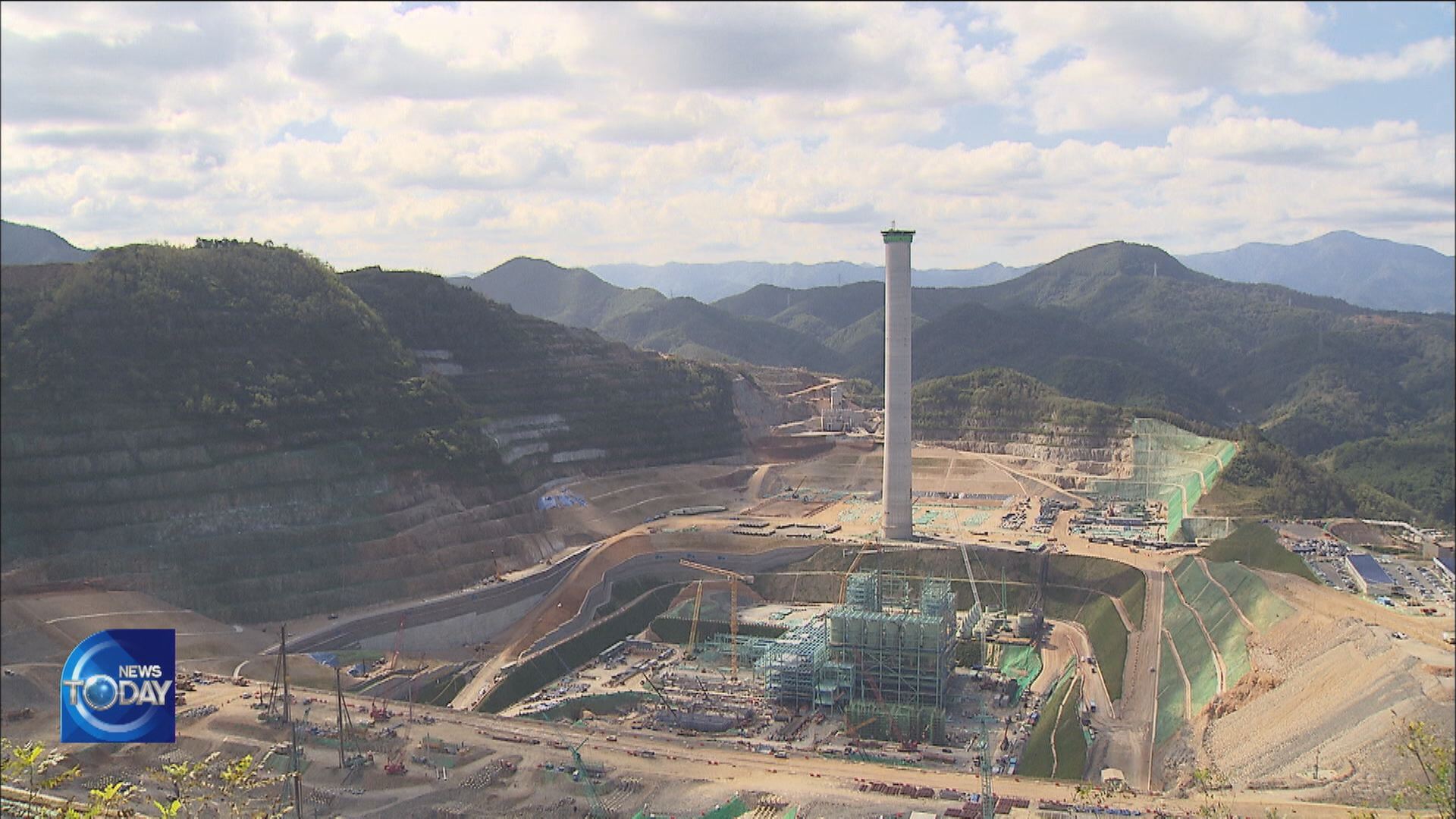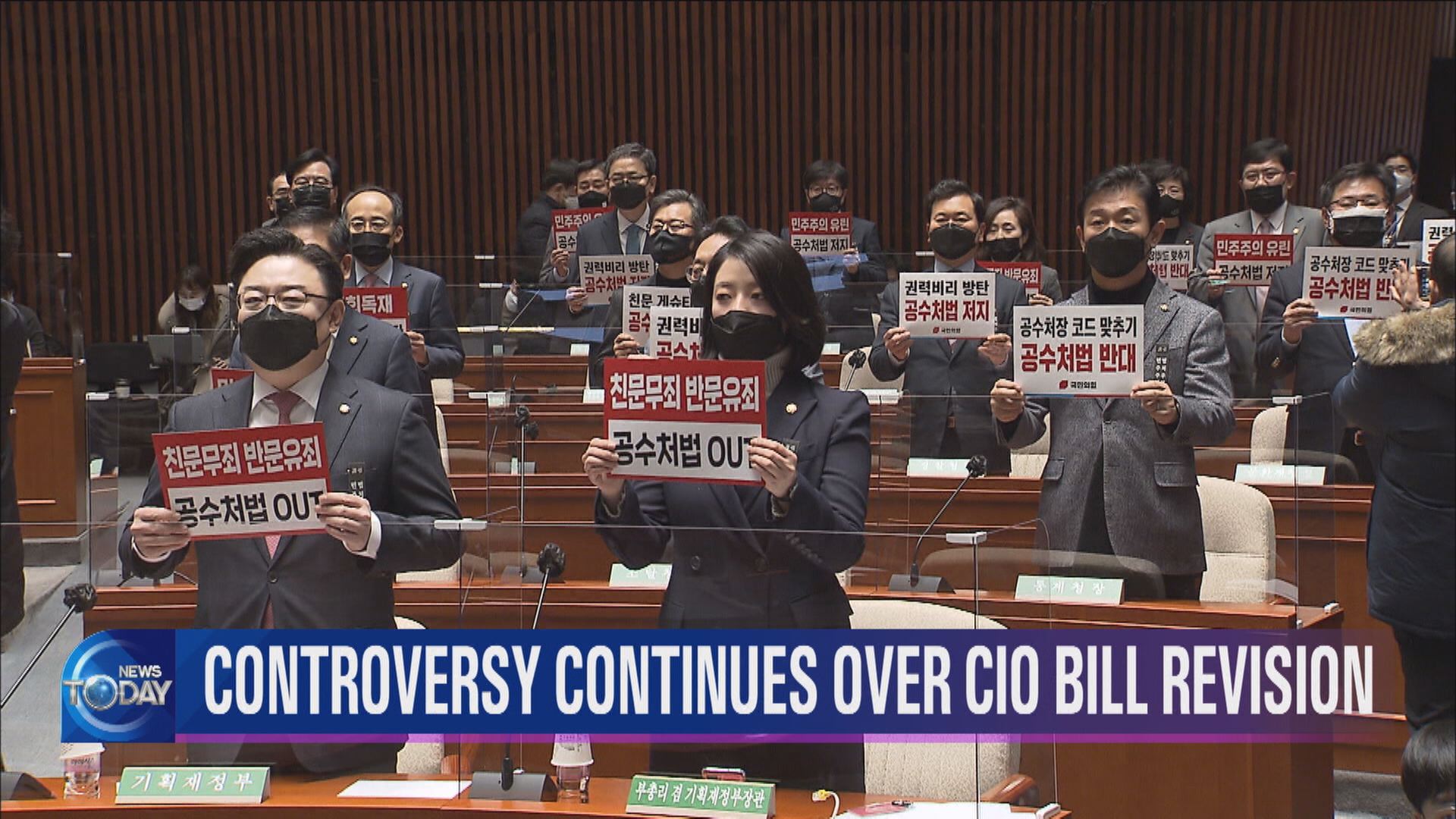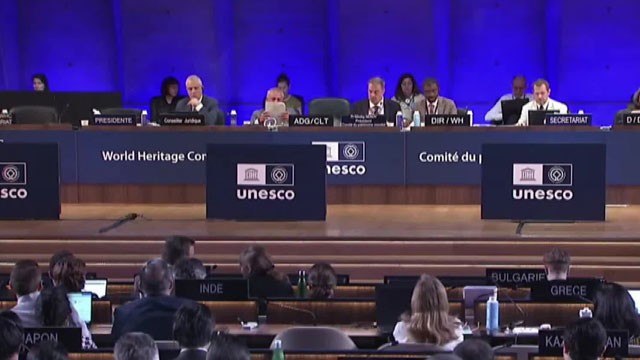COAL POWER PLANTS AND CARBON NEUTRALITY
입력 2020.12.09 (15:17)
수정 2020.12.09 (16:46)
읽어주기 기능은 크롬기반의
브라우저에서만 사용하실 수 있습니다.
[Anchor Lead]
The South Korean government recently laid out a blueprint to achieve carbon neutrality by the year 2050. But ironically, coal power plants are still being constructed nationwide and will surely become a burden on the carbon neutral plan. How can this issue be addressed? We take a look.
[Pkg]
A coal power plant construction site in Gangneung, Gangwondo Province. Two one-gigawatt power stations are being built and the construction is about half way done. In nearby Samcheok, two more coal power stations are under construction. Seven in total are being built across the country to generate 7.2 gigawatts of power. This accounts for 20% of the country’s entire coal power generation. Once the new plants are up and running, they are expected to emit an estimated 48 million tons of greenhouse gas each year.... That's about 6.8% of Korea’s total annual greenhouse gas emission.
[Soundbite] LEE JI-EON(ACTIVIST, KOREAN FEDERATION FOR ENVIRONMENTAL MOVEMENT) : "The UN advises there should be an average 7% reduction in greenhouse gases globally each year. But Korea will increase it by that amount. This goes counter to climate change response measures."
The government vowed to reduce dependence on coal power and eventually go carbon neutral. But more coal plants are being erected. This is because the new projects were endorsed in 2013 during the previous administration.
[Soundbite] HONG JONG-HO(DEAN, SEOUL NAT’L UNIVERSITY GRADUATE SCHOOL OF ENVIRONMENTAL STUDIES) : "The government which declared the 2050 neutrality goal should work to phase out coal power at an early date through compensation efforts."
The problem lies not only in carbon emission but in the decreasing economic feasibility of coal power generation. Over the next 10 years, the cost of renewable energy is expected to become cheaper than coal power.
[Soundbite] KIM JOO-JIN(REPRESENTATIVE, SOLUTIONS FOR OUR CLIMATE) : "If the continued operation is clearly a burden on consumers, the construction of coal plants should be suspended right now and follow-up measures be discussed."
A bill is currently pending in parliament that calls for greater support for businesses that switch away from coal.
The South Korean government recently laid out a blueprint to achieve carbon neutrality by the year 2050. But ironically, coal power plants are still being constructed nationwide and will surely become a burden on the carbon neutral plan. How can this issue be addressed? We take a look.
[Pkg]
A coal power plant construction site in Gangneung, Gangwondo Province. Two one-gigawatt power stations are being built and the construction is about half way done. In nearby Samcheok, two more coal power stations are under construction. Seven in total are being built across the country to generate 7.2 gigawatts of power. This accounts for 20% of the country’s entire coal power generation. Once the new plants are up and running, they are expected to emit an estimated 48 million tons of greenhouse gas each year.... That's about 6.8% of Korea’s total annual greenhouse gas emission.
[Soundbite] LEE JI-EON(ACTIVIST, KOREAN FEDERATION FOR ENVIRONMENTAL MOVEMENT) : "The UN advises there should be an average 7% reduction in greenhouse gases globally each year. But Korea will increase it by that amount. This goes counter to climate change response measures."
The government vowed to reduce dependence on coal power and eventually go carbon neutral. But more coal plants are being erected. This is because the new projects were endorsed in 2013 during the previous administration.
[Soundbite] HONG JONG-HO(DEAN, SEOUL NAT’L UNIVERSITY GRADUATE SCHOOL OF ENVIRONMENTAL STUDIES) : "The government which declared the 2050 neutrality goal should work to phase out coal power at an early date through compensation efforts."
The problem lies not only in carbon emission but in the decreasing economic feasibility of coal power generation. Over the next 10 years, the cost of renewable energy is expected to become cheaper than coal power.
[Soundbite] KIM JOO-JIN(REPRESENTATIVE, SOLUTIONS FOR OUR CLIMATE) : "If the continued operation is clearly a burden on consumers, the construction of coal plants should be suspended right now and follow-up measures be discussed."
A bill is currently pending in parliament that calls for greater support for businesses that switch away from coal.
■ 제보하기
▷ 카카오톡 : 'KBS제보' 검색, 채널 추가
▷ 전화 : 02-781-1234, 4444
▷ 이메일 : kbs1234@kbs.co.kr
▷ 유튜브, 네이버, 카카오에서도 KBS뉴스를 구독해주세요!
- COAL POWER PLANTS AND CARBON NEUTRALITY
-
- 입력 2020-12-09 15:17:58
- 수정2020-12-09 16:46:20

[Anchor Lead]
The South Korean government recently laid out a blueprint to achieve carbon neutrality by the year 2050. But ironically, coal power plants are still being constructed nationwide and will surely become a burden on the carbon neutral plan. How can this issue be addressed? We take a look.
[Pkg]
A coal power plant construction site in Gangneung, Gangwondo Province. Two one-gigawatt power stations are being built and the construction is about half way done. In nearby Samcheok, two more coal power stations are under construction. Seven in total are being built across the country to generate 7.2 gigawatts of power. This accounts for 20% of the country’s entire coal power generation. Once the new plants are up and running, they are expected to emit an estimated 48 million tons of greenhouse gas each year.... That's about 6.8% of Korea’s total annual greenhouse gas emission.
[Soundbite] LEE JI-EON(ACTIVIST, KOREAN FEDERATION FOR ENVIRONMENTAL MOVEMENT) : "The UN advises there should be an average 7% reduction in greenhouse gases globally each year. But Korea will increase it by that amount. This goes counter to climate change response measures."
The government vowed to reduce dependence on coal power and eventually go carbon neutral. But more coal plants are being erected. This is because the new projects were endorsed in 2013 during the previous administration.
[Soundbite] HONG JONG-HO(DEAN, SEOUL NAT’L UNIVERSITY GRADUATE SCHOOL OF ENVIRONMENTAL STUDIES) : "The government which declared the 2050 neutrality goal should work to phase out coal power at an early date through compensation efforts."
The problem lies not only in carbon emission but in the decreasing economic feasibility of coal power generation. Over the next 10 years, the cost of renewable energy is expected to become cheaper than coal power.
[Soundbite] KIM JOO-JIN(REPRESENTATIVE, SOLUTIONS FOR OUR CLIMATE) : "If the continued operation is clearly a burden on consumers, the construction of coal plants should be suspended right now and follow-up measures be discussed."
A bill is currently pending in parliament that calls for greater support for businesses that switch away from coal.
The South Korean government recently laid out a blueprint to achieve carbon neutrality by the year 2050. But ironically, coal power plants are still being constructed nationwide and will surely become a burden on the carbon neutral plan. How can this issue be addressed? We take a look.
[Pkg]
A coal power plant construction site in Gangneung, Gangwondo Province. Two one-gigawatt power stations are being built and the construction is about half way done. In nearby Samcheok, two more coal power stations are under construction. Seven in total are being built across the country to generate 7.2 gigawatts of power. This accounts for 20% of the country’s entire coal power generation. Once the new plants are up and running, they are expected to emit an estimated 48 million tons of greenhouse gas each year.... That's about 6.8% of Korea’s total annual greenhouse gas emission.
[Soundbite] LEE JI-EON(ACTIVIST, KOREAN FEDERATION FOR ENVIRONMENTAL MOVEMENT) : "The UN advises there should be an average 7% reduction in greenhouse gases globally each year. But Korea will increase it by that amount. This goes counter to climate change response measures."
The government vowed to reduce dependence on coal power and eventually go carbon neutral. But more coal plants are being erected. This is because the new projects were endorsed in 2013 during the previous administration.
[Soundbite] HONG JONG-HO(DEAN, SEOUL NAT’L UNIVERSITY GRADUATE SCHOOL OF ENVIRONMENTAL STUDIES) : "The government which declared the 2050 neutrality goal should work to phase out coal power at an early date through compensation efforts."
The problem lies not only in carbon emission but in the decreasing economic feasibility of coal power generation. Over the next 10 years, the cost of renewable energy is expected to become cheaper than coal power.
[Soundbite] KIM JOO-JIN(REPRESENTATIVE, SOLUTIONS FOR OUR CLIMATE) : "If the continued operation is clearly a burden on consumers, the construction of coal plants should be suspended right now and follow-up measures be discussed."
A bill is currently pending in parliament that calls for greater support for businesses that switch away from coal.
이 기사가 좋으셨다면
-
좋아요
0
-
응원해요
0
-
후속 원해요
0












![[속보] 내란특검 “서울구치소에 오후 2시까지 윤석열 전 대통령 3차 인치 지휘”](/data/layer/904/2025/07/20250716_5Lxha9.jpg)
![[속보] 순직 해병 특검 “오늘 오후 박정훈 대령 참고인 조사”](/data/layer/904/2025/07/20250716_MUM2IP.jpg)
![[속보] 경찰·노동부, ‘인천 맨홀 사망’ 인천환경공단 등 5곳 압수수색](/data/layer/904/2025/07/20250716_Xf75h5.jpg)


이 기사에 대한 의견을 남겨주세요.